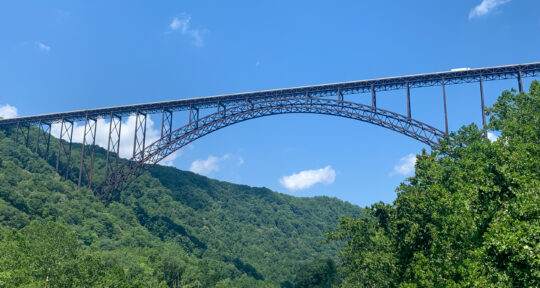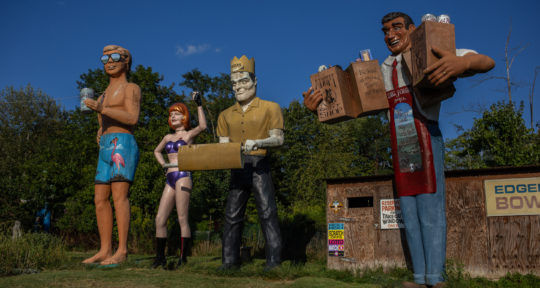Mike Perry was once a leader in West Virginia’s business community. Perry built Banc One, the state’s first billion-dollar banking organization—but while he loved sealing business deals, Perry also had another passion. On weekends, the busy banker would happily shed his coat and tie, don his well-worn work clothes, and prowl antique stores and estate sales, looking for items to add to his growing collection of items recalling Appalachia’s past.
Over the years, Perry and his wife Henriella added items by the dozen to their collection. Soon they ran out of room at their farmhouse, so they filled their barn. Then they started buying hand-hewn log cabins, disassembling them and moving them to their farm. What started out as a hobby turned into 25,000 square feet of Appalachian artifacts in a complex of rustic buildings nestled among 800 acres of rolling hills, gentle streams, and a lush green canopy.
Mike Perry died in 2015, but Heritage Farm Museum and Village continued to thrive and grow as a family affair. Located just minutes from downtown Huntington, the village provides an opportunity to take a step back in time and see firsthand what life was like for a pioneer in Appalachia.
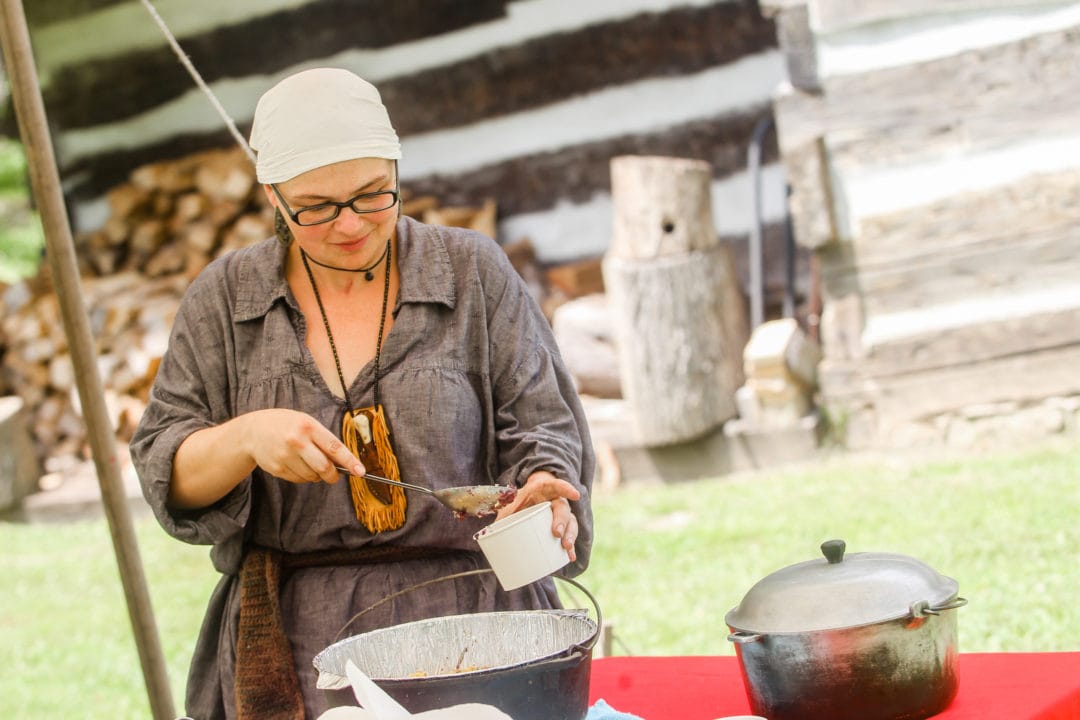
Today, Perry’s son Audy is following in his father’s footsteps as the farm’s executive director, while Henriella continues to keep her careful eye on things. Audy’s wife Laura is the farm’s manager and their oldest child, Rebekah Perry Franks, is the farm’s wildlife director. Last year, the village attracted more than 30,000 visitors.
Making bread and brooms
Heritage Farm officially began with its first Spring Festival on May 4, 1996, and annual celebrations followed. “This yearly event was the only day we were open to the general public until 2006,” says Audy. Since then, the farm has created a busy schedule of events and added a long list of things to see and do.
The museum and village now features 30 exhibit-filled buildings, including a country store, blacksmith shop, one-room schoolhouse, working sawmill, artisan center, historic log church, and a children’s activity museum. There’s also a farm animal petting zoo and five miles of wooded hiking trails.
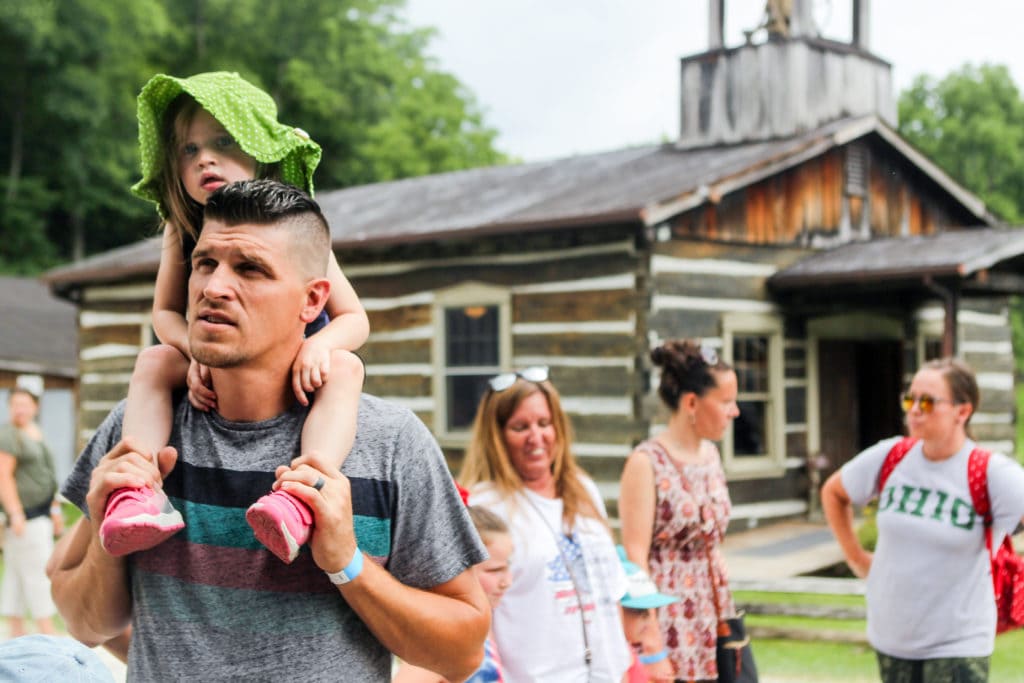
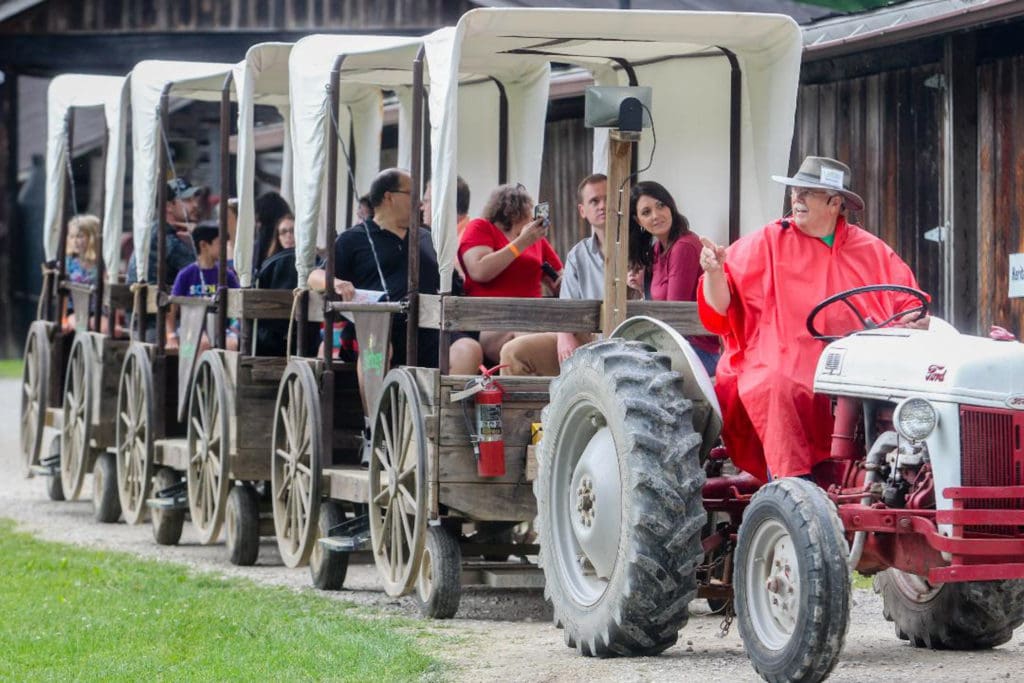
“Our iconic log church was moved to the farm from its original location in rural Lincoln County, West Virginia,” Audy says. “It stands in the middle of the village to remind us about the centrality of faith in early Appalachian life.”
The farm has overnight lodging available at five cabin inns that offer country-style living with all the modern amenities. Each of the cabins offers guests the full use of the entire home, with a full kitchen, heating and air conditioning, and a washer and dryer (but no TV). Three of the inns have wood-burning fireplaces; one has a swimming pool. For a cozier experience, guests can stay overnight in the farm’s former Virginian Railway caboose.
More than 200 musicians, craftspeople, re-enactors, and other volunteers come together each year to bring the farm to life for its annual Spring Festival. Festivalgoers can stroll through the village and see demonstrations of glass blowing, pottery making, bread making, broom making, blacksmithing, woodworking, basket weaving, and more. Other smaller weekend events called “Wayback Weekends” are staged from May through October (but due to the COVID-19 virus, Heritage Farm is currently closed to the public until West Virginia schools reopen).
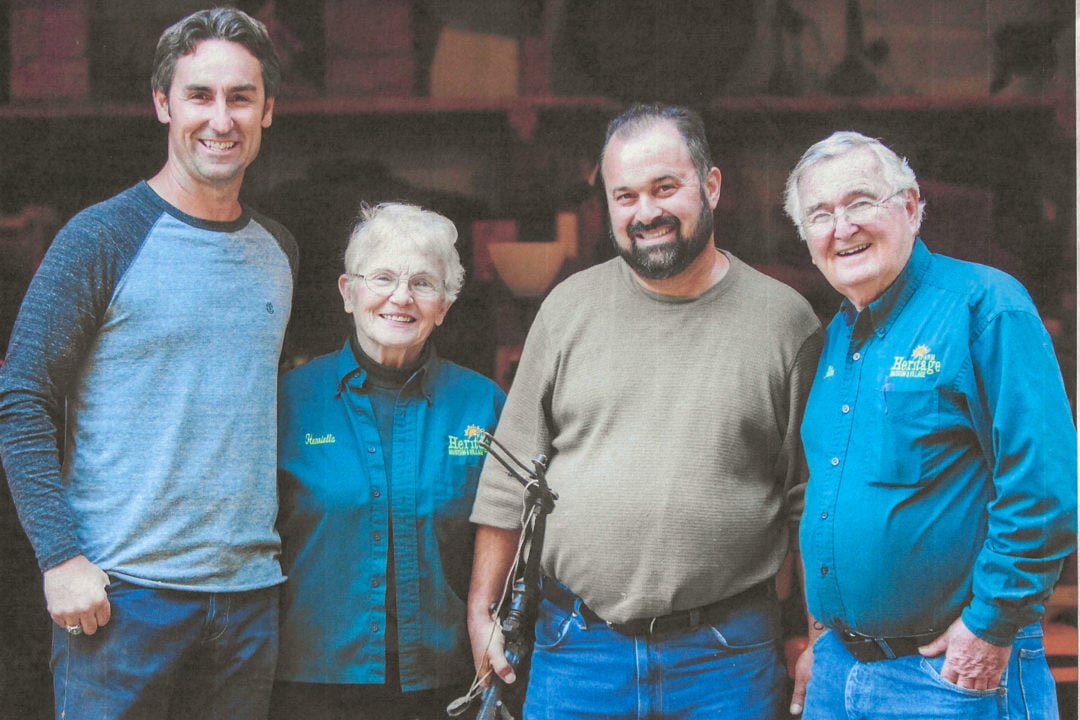
Picking through the past
In 2011, Mike Wolfe and Frank Fritz from American Pickers visited Heritage Farm. The episode aired the following December and can still be seen in frequent reruns. After the taping, Perry noted that he and Henriella had been picking since before the two TV pickers were born. “You always wonder whether they have their TV persona and then their real person, but it was like talking to people you’ve known a long time,” he said. “We enjoyed talking, pickers to pickers.”
Portions of another History Channel production, America’s Greatest Feud, a Hatfield and McCoy documentary, were also shot at Heritage Farm. In 2015, the farm was named West Virginia’s first Smithsonian Institution Affiliate, a distinction that links it with the resources and learning opportunities available through the Smithsonian.
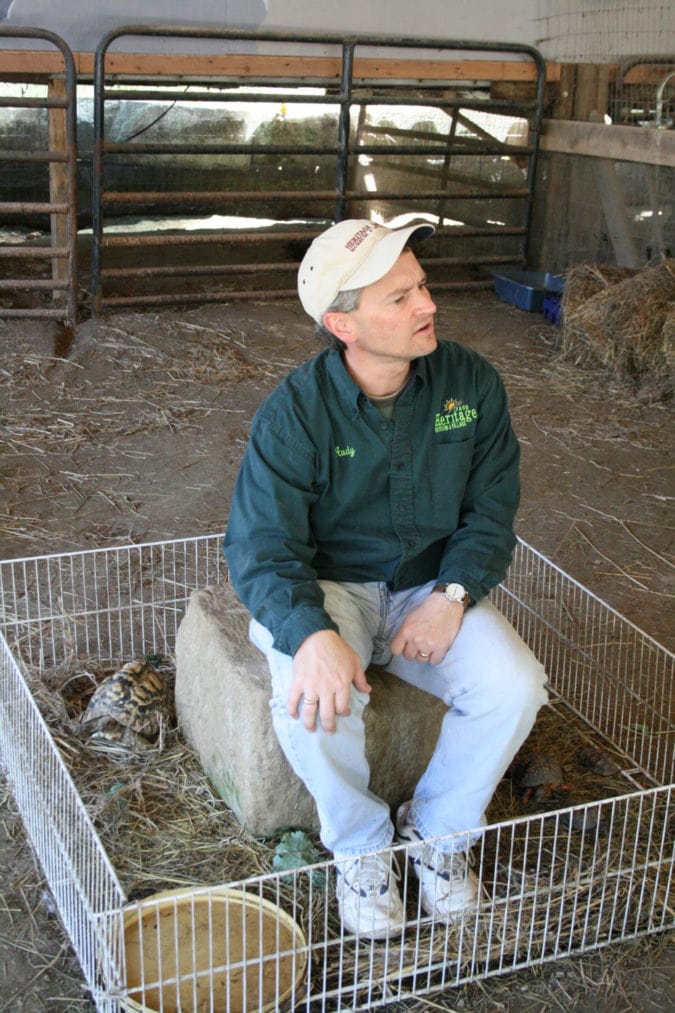
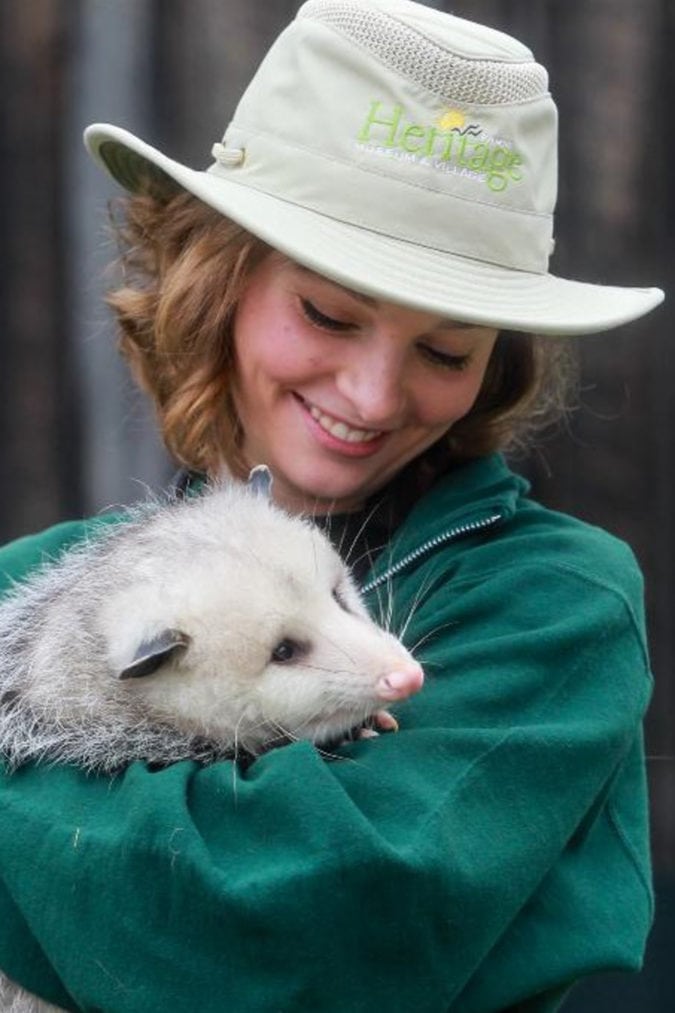
Each year thousands of school children visit the farm on organized school tours. “Our goal is to help students experience life as it was ‘back then’ and learn about inventions that helped create the life we live today,” Audy says. “We host practically every elementary school within a two-hour drive, and sometimes older students as well. We consider our connection with area schools and children vital, and are continuously exploring means of connecting people with their past to gain an appreciation and perspective for the future.”
Franks and her trusty sidekick Perry Opossum teach the farm’s young visitors about what’s in their own backyards and how they can live in harmony with nature. A graduate of Ohio’s Otterbein University with a degree in zoo and conservation science and business administration, Franks worked in the North American section of the Columbus Zoo. Today, she’s working hard to put the finishing touches on the farm’s new Nature Center, set to open this year.
“Our hope is that our new Nature Center will be a unique ‘living classroom’ experience where visitors are able to learn about the wildlife of Appalachia while actually being surrounded by live animals native to the area,” Audy says. “We believe that the history of Appalachia—its ingenuity, its hardiness, and its warmth—is worthy of celebration, and we believe future generations are especially in need of this message.”
If you go
This location is currently closed due to the spread of COVID-19. Please contact Heritage Farm directly for the latest information and ways to show support. Stay safe (and stay home)!

